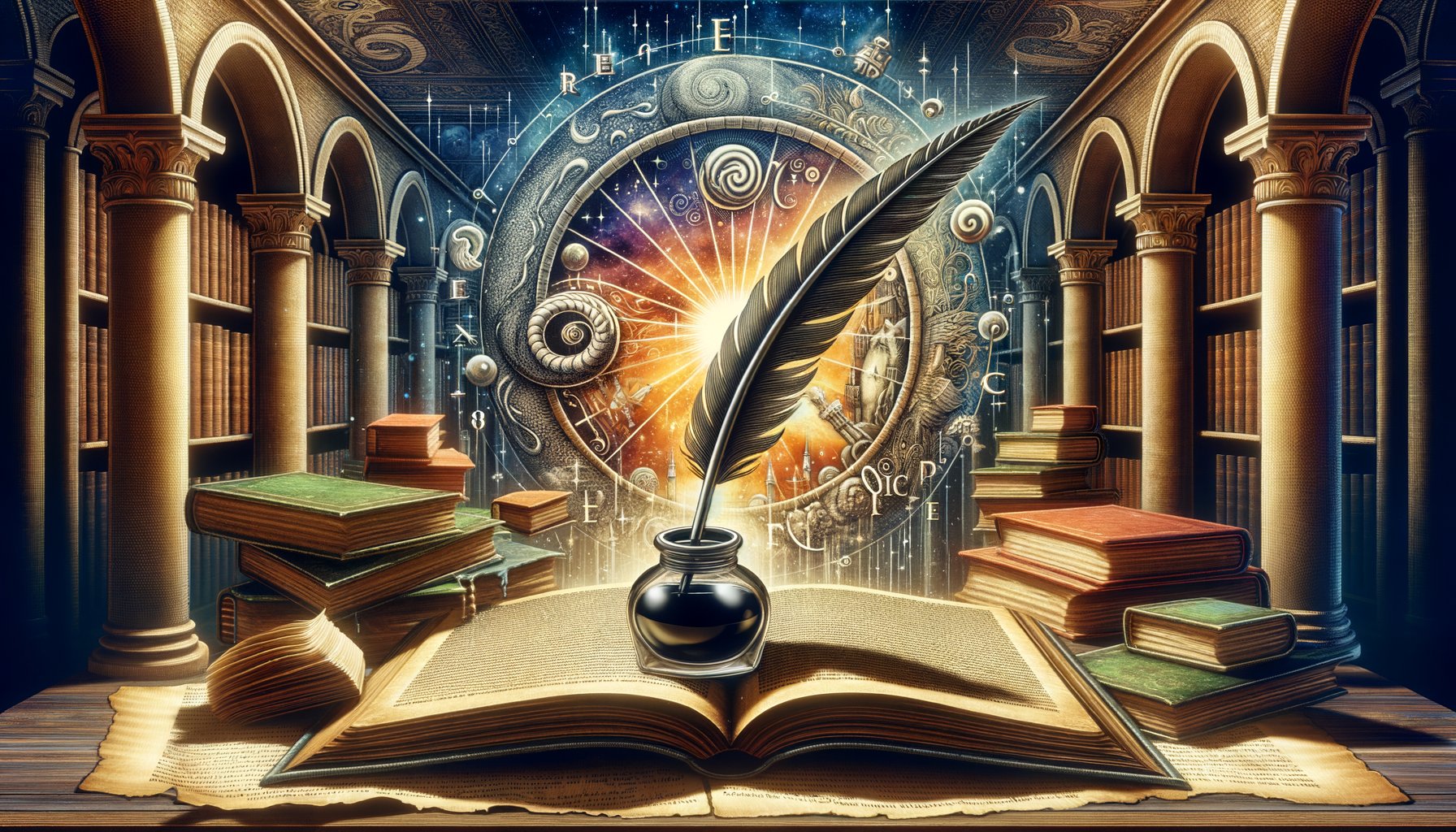Physical Address
304 North Cardinal St.
Dorchester Center, MA 02124
Physical Address
304 North Cardinal St.
Dorchester Center, MA 02124

Once upon a time, in a world before television and the internet, epic tales were the cinematic blockbusters of their day. These long, narrative poems traditionally depicted heroic deeds and adventures, often with a touch of the divine or supernatural thrown into the mix. From Homer’s “Iliad” and “Odyssey” to Virgil’s “Aeneid”, these stories have shaped our understanding of heroism, adventure, love, and loss. But as we moved into modern times, this grand form of storytelling seemed to fade into the background.
However, like a phoenix rising from its ashes – or perhaps more aptly, like an ancient hero returning from an impossible quest – epics are making a comeback in contemporary literature. And they’re not just confined to poetry anymore; today’s epics span genres and mediums, from novels and graphic novels to video games and TV series.
So why are we seeing this revival? What is it about these old forms that continues to captivate us? Let’s dive deep into the resurgence of epic narratives in modern literature.
Epic narratives have always held an inherent appeal for audiences across cultures and ages. They offer larger-than-life characters who overcome seemingly insurmountable odds – think Odysseus battling mythical creatures on his decade-long journey home or Beowulf slaying monsters to protect his people. These stories inspire us with their themes of courage, resilience, loyalty and sacrifice.
In today’s uncertain world where challenges can feel overwhelming – whether they’re global pandemics or personal struggles – there’s something comforting about immersing ourselves in tales that remind us of human strength and resilience. We find solace knowing that even against tremendous odds, heroes emerge victorious.
Today’s epics may not follow the exact format of their ancient counterparts, but they carry forward the same spirit. They present us with grand narratives that span vast geographical and temporal scales, filled with complex characters who grapple with monumental challenges.
A prime example is George R.R. Martin’s “A Song of Ice and Fire” series – better known as “Game of Thrones”. This sprawling saga features a cast of complex characters navigating political intrigue, war, and supernatural threats in a world as richly detailed as any ancient epic. It’s no wonder that it has captivated audiences worldwide.
Another example is J.K. Rowling’s “Harry Potter” series. While it may seem far removed from the likes of Homer or Virgil, this beloved series shares many elements with traditional epics – the hero’s journey, magical elements, battles against evil forces, and themes of friendship and sacrifice.
Technology has played a significant role in the revival of epics in modern literature. With digital platforms like eBooks and audiobooks becoming increasingly popular, authors now have more freedom to create longer narratives that might have been impractical in print form.
Moreover, technology has also paved the way for new mediums to tell epic stories. Video games like “The Witcher” or “Mass Effect” series offer expansive worlds filled with rich lore and character development – essentially digital versions of epic narratives.
In our increasingly fragmented world where individual experiences can feel isolated and disconnected, there’s something powerful about shared narratives that bring people together. Epic tales offer this communal experience – whether it’s fans theorising over plot twists in “Game of Thrones”, or the global anticipation for each new “Harry Potter” book release.
These shared experiences create a sense of community, bringing people together across geographical and cultural divides. In this way, modern epics serve a social function similar to their ancient counterparts – they provide common stories and values that help define communities.
Despite changes in form and medium, the enduring appeal of epics lies in their ability to tell grand narratives that resonate with our human experience. They offer tales of courage and resilience against daunting odds – themes that remain relevant regardless of time or place.
So as we navigate through our modern world filled with its own challenges and adventures, it’s comforting to know that we can always turn to these epic tales for inspiration. After all, if Odysseus can make it home after ten years at sea facing monsters and gods alike, then surely we can handle whatever life throws our way!